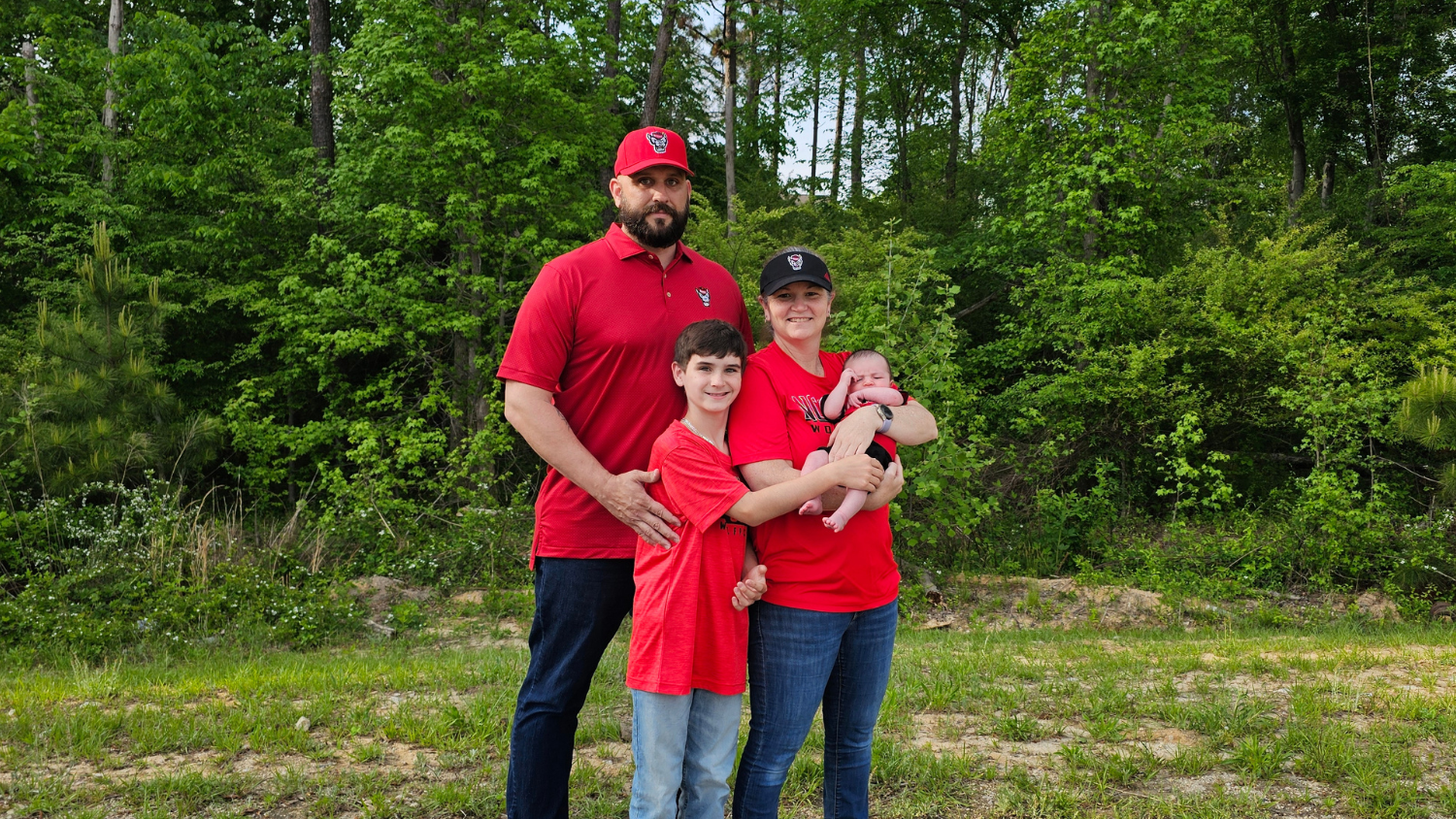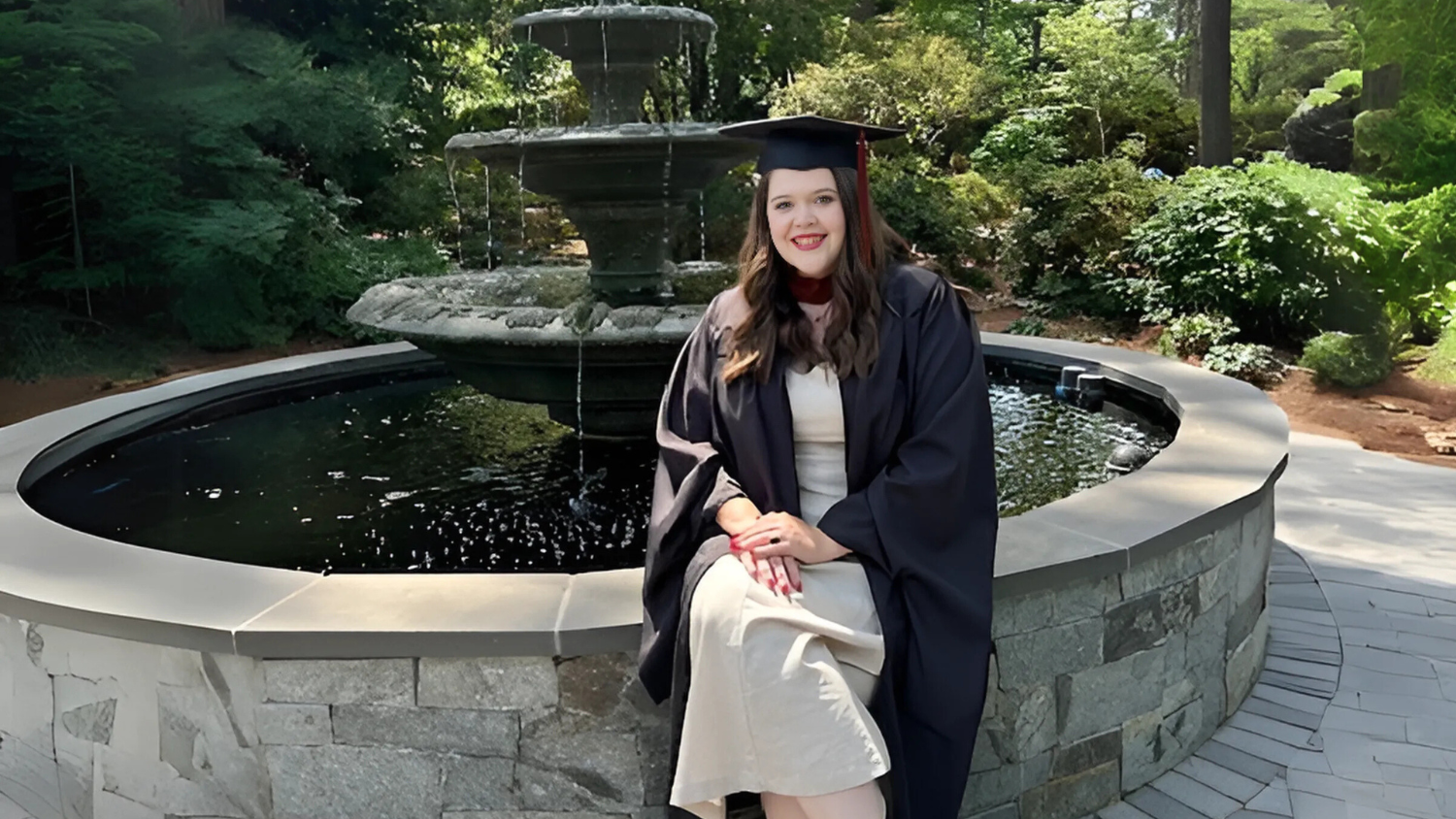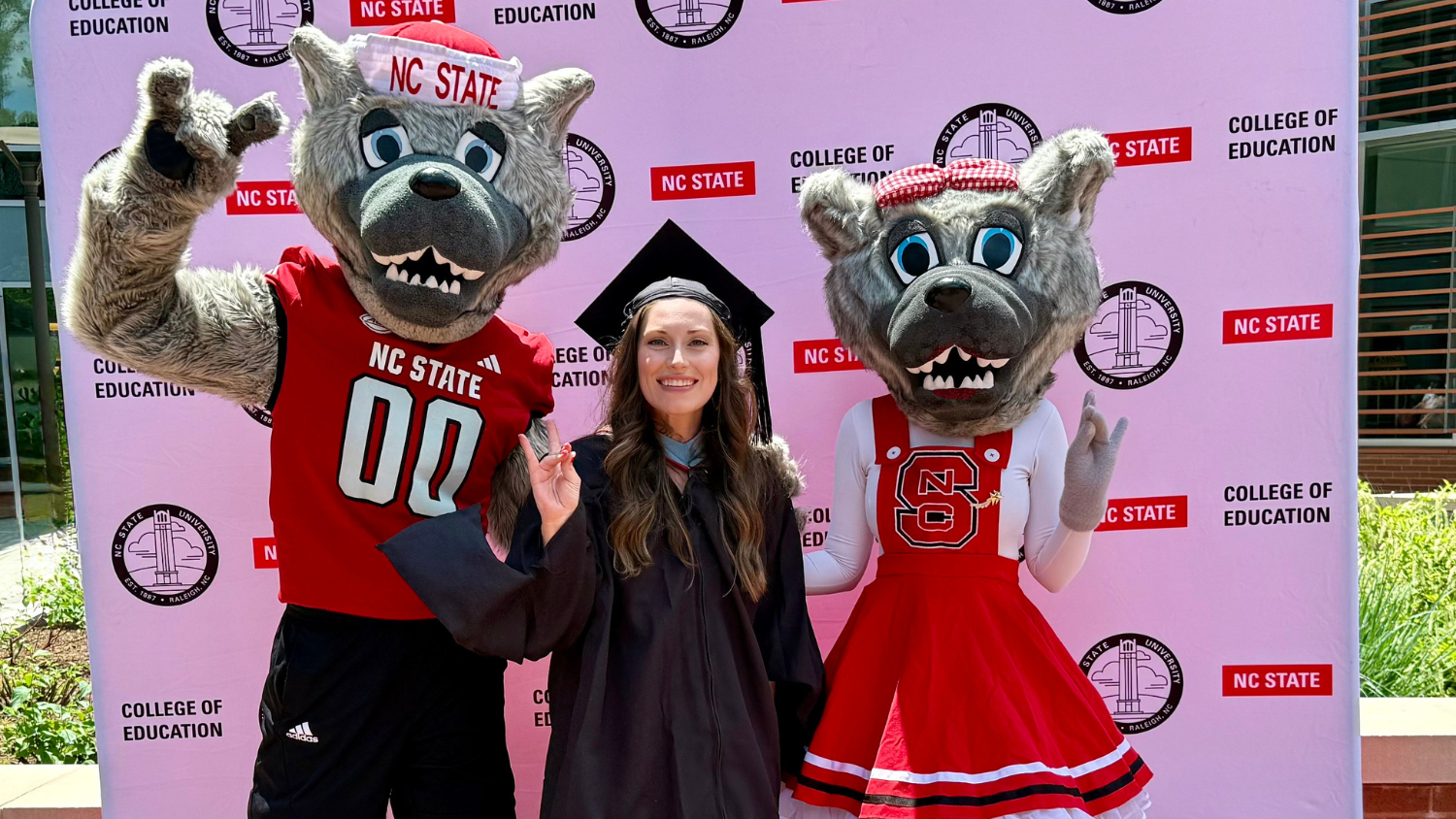MGIST Student Advances Engineering Career

If there’s one word to describe graduate student Peter Erlenbach, it’s determined. Working full-time as a solution engineer at the Environmental Systems Research Institute in Charlotte, North Carolina, he decided to enroll in the online Master of Geospatial Information Science and Technology (MGIST) program at NC State.
Erlenbach aspires to work in project management and business development, so he began searching for a master’s program that would pave the way for success in his career. “After speaking with my mentors and connections in management positions, they all expressed that a master’s would help to accelerate my career path and teach me the needed skills to be competitive,” he says. “I completed research on a variety of GIS programs at the graduate level such as George Mason, Virginia Tech, UNC Charlotte and NC State. I ultimately chose NC State’s program due to its ability to be completed while I continued to work full time and its reputation for teaching a blend of project management skills and advanced GIS topics.”
NC State’s Professional Science Master’s Programs caught his attention at the start of his application process. Erlenbach spoke with Director of the MGIST Program and Associate Director of Professional Education Eric Money who advised a degree from the program would be highly regarded in the GIS community and his own career development.
Throughout the program, he has found digital learning to be beneficial for his educational needs.
“The professors are truly some of the best I have encountered in my educational career,” he says. “I expected to be disconnected from the university because I am remote, but the professors do an excellent job of connecting with students and providing a productive learning environment. This helps me significantly in my career as I work with a variety of offices on different projects so I learn how to work with people I don’t see every day.”
In efforts to expand his involvement throughout the program, Erlenbach is a distance education representative for the NC State Geospatial Graduate Student Association (GGSO). “This was a great group and I wish I had more time to help them continue to move forward and develop events for students,” he says. As a distance education representative, he provides input on how events being planned by the GGSO could be improved to reach the MGIST Distance Education students.
In addition to serving on the GGSO, Erlenbach is a board member for the North Carolina ArcGIS User Group (NCAUG) where he helps plan events, socials and webinars that engage GIS users across North Carolina. “I actually connected NCAUG and GGSO with one another so they could work together moving forward which was a big win for GGSO and NCAUG together,” he shares.
Erlenbach learned how crucial it was to practice time management throughout the online program. Completing his degree virtually pushed him to hold himself accountable for assignments. “I am pulled in different directions by my work, school and personal commitments,” he says. “I have been able to balance these by working ahead, scheduling time to focus on and review assignments.” In addition to expanding his understanding of GIS, he’s strengthened his time management skills.
Managing his responsibilities with work and school has also been accompanied by caring for his mental health throughout the program. “The biggest challenge is balancing the two workloads with mental health,” he shares. “It’s easy to get overwhelmed if you don’t manage your time wisely. I complete the bulk of my master’s work in the evenings and on weekends. With school and work requiring a lot of time in my schedule, I carve out time for a golf game to connect with friends, or a family event on a Saturday to ensure I have a healthy balance between school and my personal life. If I know I am going to be occupied on a certain day, I evaluate my work and study schedule to ensure I have enough time to dedicate to both my school assignments and project deliverables.”
Erlenbach has found additional support from faculty within the program. He noted the support Money provides as his advisor.
“We touch base about once a semester and connect regarding class registration. We have a very honest relationship where I explain my workload and skillsets for the coming semester and he advises me on if the workload and class load could be balanced. Every suggestion he has given me has been spot on,” he says.
For those thinking about continuing their education through NC State’s MGIST program, Erlenbach says, “There are a variety of options when pursuing professional certifications in the GIS career field. Choose one that best fits you. I think the world of this program and highly recommend it to anyone looking to further their GIS education.”
Are you interested in pursuing your online degree in Geospatial Science and Technology? Visit the program page or online.ncsu.edu/programs for a full list of degree and certificate programs.
This post was originally published in DELTA News.
- Categories:


